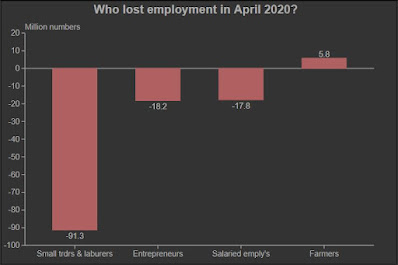Mission Critical : Sri-Lankan political Crisis
By the shocking actions of President Maithripala Sirisena by
withdrawing his support from the standing government. On 26th
October 2018 he sacked Mr. Wickremsinghe from his position and sworn in the ex-President
Mahinda Rajapaksa as the new Prime Minister. The ousted Prime Minister Ranil
Wickremesinghe calling out his actions un-constitutional challenged his decision
and urged the speaker to convene a session in the Parliament as soon as
possible. But before anything could be done Mr. Sirisena suspended the
parliament until November 16 and plunged the entire country into a political
crisis with his decisions. Now Mr. Wickremsinghe is waiting to prove in the
floor test his majority and reclaim his position.
The turn of events has put the entire world into a
disbelief, but an event of this magnitude was bound to take place. In 2015
Presidential Election Mr. Sirisena fought against Mr. Rajpakshe, representing
the oppositions coalition as a “common candidate”, although his victory in the election is
generally viewed as a surprise, coming to the office through the votes won from the
alternative Sinhala-majority rural constituency and the Tamil and Muslim minority groups that have been alienated by the Rajapaksa
government on post-war reconciliation and growing sectarian violence. In the
2015 Parliamentary Elections, Mr. Wickremsinghe won the elections
from the coalition government namely United National Front, of his party
namely the United National Party with 106 seats and 35 seats from Sri
Lanka Freedom Party out of 225
seats and hence forming the majority. From previous discussions within the
party it was decided that if Mr. Sirisena had won the Presidential Elections he
would appoint Mr. Wickremsinghe the elected leader of United National Front as
the Prime Minister.
After the government was formed Mr. Wickremsinghe vowed to regain
majority in the Parliament and make it a full United National Party
government. But the problem started to brew shortly after the Government Bonds
controversy, by then Mr. Sirisena and Mr. Wickemsinghe had already started to
drift apart, but the nail to the coffin was the results of 2018 local authority
elections, where Wickremesinghe led the United National Party, suffered a major blow
and were able to secure only 34 councils out of 340,
whereas the Mahinda Rajpakshe’s proxy Sri Lanka Podujana Perumana won 231
councils.
After
the election defeat some MP's of UNP and party members asked Mr. Wickremsinghe
to resign from the party leadership and Prime Minister Position. Some media
reported that Mr. Sirisena also urged Mr. Wickremsinghe to resign from his position
leading to a political crisis.
Mr.
Sirisena fearing his position in the leadership and an impending crisis in hand
to support his party and remain in their good side hatched this plot to bring
back normalcy in the Parliament. Although the statements and the reason given
by Mr. Sirisena to take these drastic steps is that in the ongoing
investigations on a plot to assassinate him, he accuses Mr. Wickremsinghe to be
a part of the plot which is baseless. This only shows his own insecurity about
garnering the required strength and blatant abuse of his executive power by the
course of action which he has taken. The next two weeks will be crucial, with
attempts at horse-trading and the loyalty of the MPs will be seen and tested.
There is a big cyclone in the way of ousted Prime Minister Ranil Wickremesinghe
and only time will tell whether he will sail through it or the
Sirisena-Rajpakshe duo will prevail.
Irrespective,
all this has to come at a time where they are economically unstable, with
plummeting rupee value and rising unemployment and living costs. It is another
generic case of a petty political rivalry leading to the common man suffering.


Comments
Post a Comment